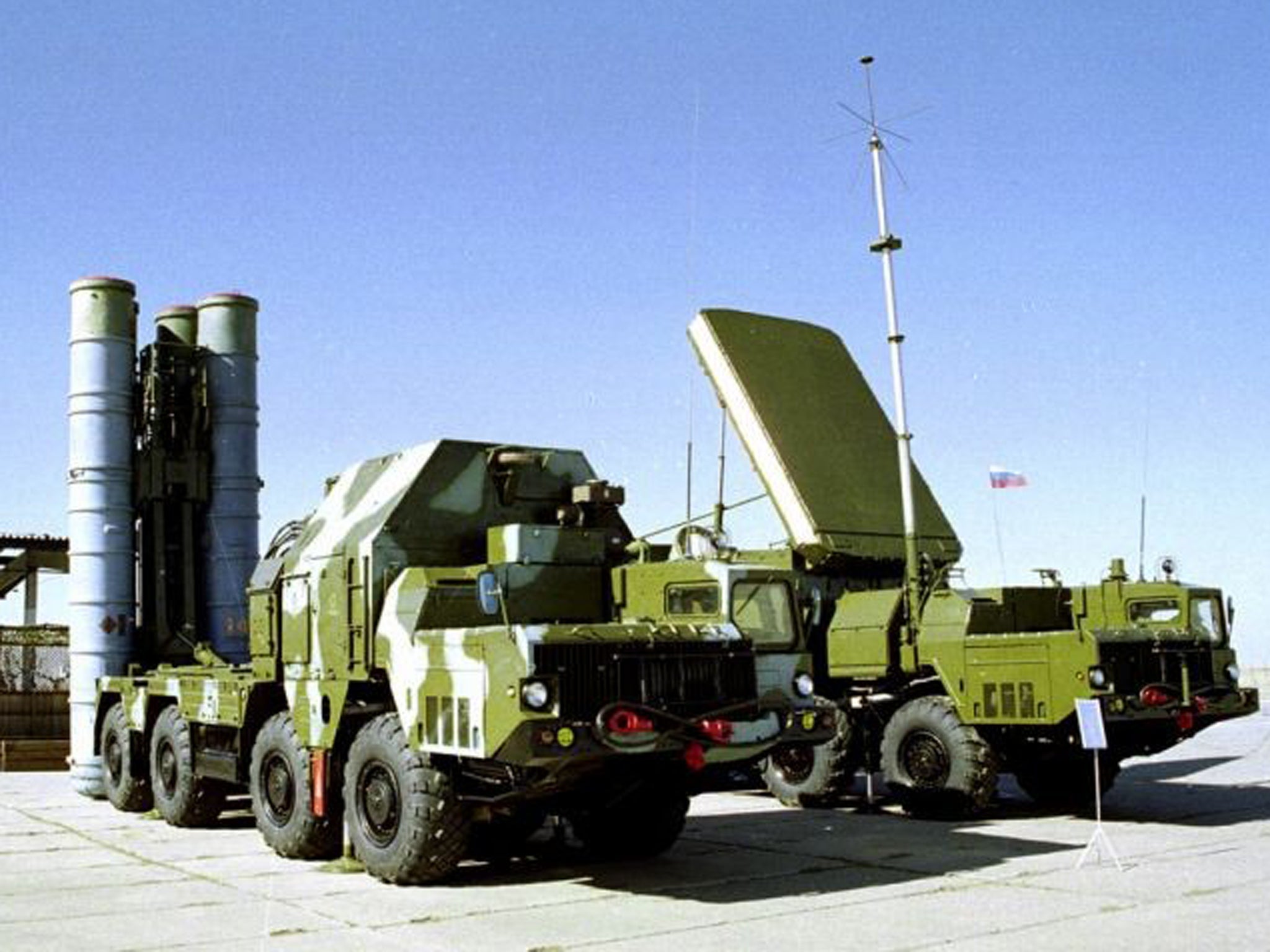Syria civil war: Russia's S-300 anti-aircraft missiles won't reach Assad until autumn, claims official
Claim contradicts Assad's claim that the missiles were already in the country

Your support helps us to tell the story
From reproductive rights to climate change to Big Tech, The Independent is on the ground when the story is developing. Whether it's investigating the financials of Elon Musk's pro-Trump PAC or producing our latest documentary, 'The A Word', which shines a light on the American women fighting for reproductive rights, we know how important it is to parse out the facts from the messaging.
At such a critical moment in US history, we need reporters on the ground. Your donation allows us to keep sending journalists to speak to both sides of the story.
The Independent is trusted by Americans across the entire political spectrum. And unlike many other quality news outlets, we choose not to lock Americans out of our reporting and analysis with paywalls. We believe quality journalism should be available to everyone, paid for by those who can afford it.
Your support makes all the difference.The Syrian government won't receive Russia's controversial shipment of advanced missiles until the autumn, according to a Russian news agency.
Interfax quotes an arms industry source, contradicting claims from Syria's President Bashar al-Assad.
In the last two days, Assad reportedly told Lebanon's Hezbollah-owned television station Al-Manar that the regime has received its first shipment of the S-300 air defence missiles - comments which further ramped up tensions in the region and threatened to undermine efforts to hold UN peace talks.
The S-300s have a range of up to 125 miles and can track and strike multiple targets simultaneously.
Although Syria already possesses Russian-supplied air defences, the S-300s would bolster its armoury, allowing it to counter air strikes launched from foreign airspace, such as those believed to have been launched by Israel from its own and Lebanese airspace.
Interfax's source also indicated the timing of the delivery of the arms would depend on how the Syrian situation develops.
Syria's civil war, now in its third year, is thought to have killed more than 70,000 and displaced more than one million. It is fought between forces loyal to President Bashar al-Assad and rebels, mostly from the disparate Free Syrian Army.
The conflict has spilled periodically across the ceasefire line and Syria's borders with Lebanon, Iraq and Turkey, threatening to engulf the region.
Most recently, elite government troops have been sent to reinforce an offensive against the heavily damaged town of Qusayr outside Homs, where rebels have been under attack for a week. There, Hezbollah fighters are fighting openly in the conflict for the first time.
Elsewhere, the head of Russian aircraft maker MiG said Russia planned to provide Syria with 10 MiG-29 fighter planes, and was discussing details with a Syrian delegation in Moscow, according to the RIA news agency.
Israel had already said that Russia's plan to supply Syria with the missiles would be treated as a threat and that it was prepared to use force to stop the delivery.
The move by Russia came four days after the European Union lifted an arms embargo on Syria, allowing its 27 member countries to send weapons to rebels fighting to overthrow Assad's regime, which itself prompted fears of an arms race in the Middle East.
Join our commenting forum
Join thought-provoking conversations, follow other Independent readers and see their replies
0Comments